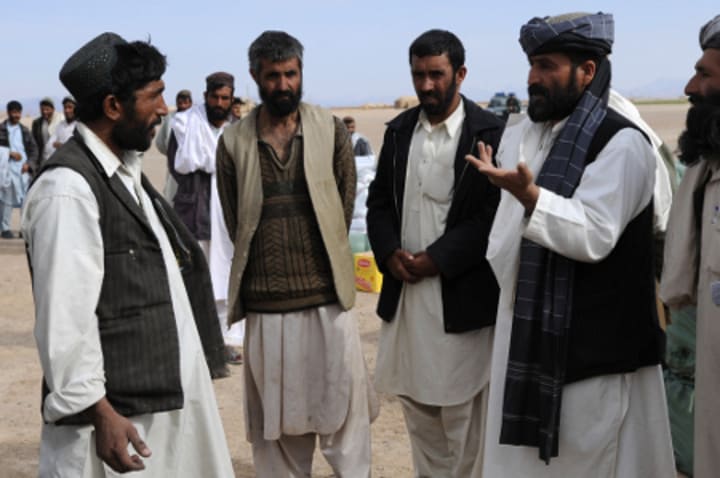
Afghanistan is one of the biggest recipients of aid in the world, and despite ten years of continuous investment, the country remains extremely low in the Human Development Index. Infant mortality, illiteracy, domestic violence and civilian casualties are still abnormally high.
And yet, when beneficiaries try to get involved in the development process, they are usually turned away. The Afghan government says it cannot help because they are not professional, the implementers say they will only listen to the donors and donors only give a line or two of their intentions.
In a context where embezzlement, fraud and nepotism are high, citizens have a big role to play in bringing accountability. Continuous monitoring can feed into oversight mechanisms and the population can help link the central government with sub-national project implementation. But lack of aid transparency is strengthening mistrust and abuse of power and resources. Having access to more aid information from donor governments is one of the key components in bringing about accountability. Although donors have asked this of the Afghan government, few live up to the same transparency standards.
Without the scope of work, bill of quantity and budget, it is difficult for citizens to know whether what is being constructed is actually what was intended by the donors. Many citizens, particularly youth, want donors in Afghanistan to be more transparent so they can reduce corruption on the ground. Increased donor transparency would allow citizens to be the eyes and ears on the ground to hold contractors and NGOs accountable. This is particular true in insecure areas where donors’ access to implementation sites are extremely limited.
Donor coordination, national alignment of funds and ownership are some of the principles which have already been agreed to make aid more effective. But access to information is still missing. The relationship between donor and recipient countries has been discussed, but the role of citizens in aid effectiveness is still missing. Yet in the case of state-building scenarios, to exclude citizens can have a higher consequence than merely inclusion.
Together with the Afghan Ministry of Finance, we launched earlier this week the Aid Transparency Index. As part of this initiative, we will discuss with donors how aid transparency can be improved in Afghanistan. We hope that at the Busan conference next week, donor countries will commit themselves to provide easy access to development program information and create an information matrix to guide a follow-up meeting in Bonn later this year.
More opinions on Busan:
The Source of Innovation by OECD-DAC chair Brian Atwood
More Health for the Money by Muhammad Yunus
Our Short Wish List for the Busan High Level Forum on Aid Effectiveness by the Center for Global Development
The Local Aid Accountability Delusion by Till Bruckner
Will Busan Deliver on Aid Transparency? by Alexandra Beech
More news on Busan:
Jonathan Glennie: Paris Declaration Flawed But Still Necessary
Donors Slow to Comply with Aid Effectiveness Principles, Aid Tool Shows
International NGO Says Donors Want Paris Declaration Scrapped
EU Common Position for Busan Forum Fails to Impress Development NGOs
Philosophical Gaps: Major Roadblocks to Achieving Coherence in Busan
Experts Weigh in on Emerging Donors’ Role at Busan Aid Effectiveness Forum




